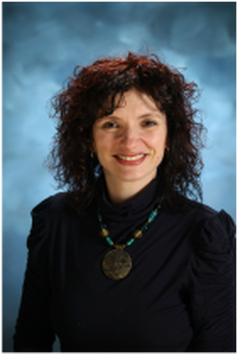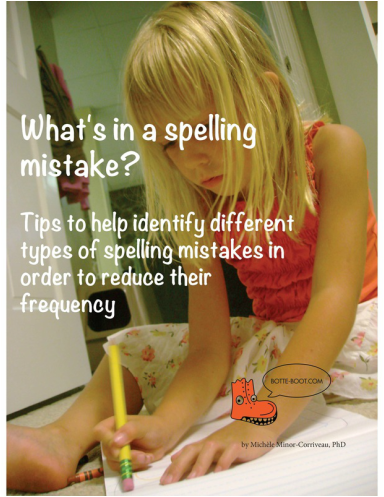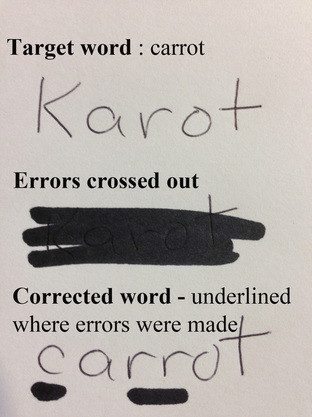|
I've written a lot about my daughter in past posts but I failed to mention that my son has a mild learning disorder with a mild dysfunction in reading and writing skills. He was diagnosed by a psychologist when he was in grade 3 at the age of 8. He is now in grade 5 and has come such a long way, thanks to the help of his teachers, support staff and the advice from my dear colleague Dr. Michèle Minor-Corriveau. Written language isn't my area of expertise and to be honest, we didn't receive a lot of training in this domain when I was completing my master's degree in Speech and language pathology. I am so grateful to have an expert in the field who is willing to work with my son and provide consultations to the school staff. I asked her to write a post for my blog so that she could share with other parents, teachers, caregivers and speech and language pathologists exactly what is a written language impairment and how we can go about helping those who struggle with writing. You can read more about Dr. Minor-Corriveau at the end of this post. Here is her post... If we were dropped off on a deserted island void of alphabet, written words, signs or messages, we would never learn to write, nor would have the need to. Social beings that we are, we would, however inherently develop an oral language common to the natives found on this deserted island in order to communicate needs, wants and desires. Written langage, however, is a code that must be taught explicitly : it is not acquired simply by interacting with other social beings. So how do we decide which skill to teach first ? The answer to this question is not a simple one, nor is it clear cut. The answer to this question far exceeds the limits of this post, but it should be well understood that learning written language is not linear. One does not master the art of spelling and writing accurately without explicit instruction, or by summing up different skills to make a whole. In this case, the whole is greater than the sum of its parts, and given the diversity of children’s abilities grouped together almost randomly in any classroom, a one size fits all approach is rarely effective. Who decided that age was the most common characteristic that children share? That is, however, the most common factor considered when grouping them together in an effort to teach them new skills. That too is a discussion for another post. Suffice it to say that, in French, there is very little to guide teachers in the manner in which to teach spelling abilities, but there is a recommended hierarchy that, when followed across a continuum, would help children efficiently master the basics. And although mastery of one competency can lead to mastery in another, this is not a guarantee of success and some insight is needed to choose which skill should be targeted next. I suggest reading up on Pothier to gain a better understanding of this concept. Of the utmost importance when teaching children to spell and write, is knowing what type of spelling errors they are making. So what are the different types of spelling errors? Let’s be clear: children, at one time or another, exhibit every type of error. It is part of a natural learning curve. Even as adults who consider themselves to have mastered the written code, these errors often creep into our lives. Knowing how to identify the type of error you are trying to avoid or remediate can help to troubleshoot and provide strategies that will allow your child to increase written language proficiency. Common error types include, but are not limited to: syntactic, lexical and phonetic/phonological errors. When a phonetic/phonological error is sounded out, the word is not phonetically identical to the target word. For example, when the word ‘carrot’ is spelled ‘garrot’, that would be a phonetic error. If the word ‘carrot’ was spelled ‘carott’, then that would be classified as a lexical error. Syntactic errors can only be analyzed within the context of a sentence, since they can only occur when agreement between words or clauses is inaccurate. So what can be done to help save our children from disastrous spelling? Here are a few ideas that might help to increase the likelihood of error-free spelling. Know your child’s error type : Knowing the type of error that has been made can help provide a strategy to wipe out the error next time. Phonetic/phonological errors CAN be eliminated when you ask your child to sound out the word, but this strategy isn’t sufficient in and of itself since children will often sound out the word they originally wanted to write. A high level of insight is required to use this strategy as a means of correcting mistakes. This type of error should be one of the first types to disappear, once children’s phonological awareness skills are mastered. Lexical errors can be corrected using a dictionnary or a word prediction software such as WordQ or Medialexie. For those who are still spelling phonetically, there is an answer : using a phonetic dictionnary such as Lexibook or Franklin. These technological devices and software serve more functions than those that are listed here. Syntactic errors can only be eliminated by learning the ropes. And by ropes, I mean syntactic competencies. A word of caution: students will not master all of these skills at once, so a high tolerance for errors related to the skills that have not been taught is required to maximise student performance and interest in writing. Invest in a Sharpie : it’s an easy, fast and cost-effective way to block out mistakes. If a child makes a mistake, use the sharpie to block it out, so that he/she never sees it again. Write the word correctly above or below the blocked out word, and underline the area that should be focussed on. For example, if a child writes ‘carott’, you block it out and write ‘carrot’. That way the memory will focus on the underlined parts, and the odds of retaining the correct spelling has increased. Think of it this way : if a child must look at his error, in order to decipher and write the word correctly, he/she is exposed to the error more than the correct spelling, which increases the likelihood of making the same mistake over and over again (see picture at end of post). So here’s to teachers and parents everywhere! Let’s band together and help our children use all of the resources that are readily available: dictionaries (whether they’re paper-bound or virtual) and encourage them to embrace the difficulties of written language as part of the process. We need to change children’s perspectives: everyone makes spelling mistakes. It is only when we are aware of them and the tools that are available to help minimize them, that the battle can be conquered. Corrections and constructive feedback are not equivalent to criticism. Each child should be encouraged to master skills at his or her pace, and the only competition should be with oneself. Stay tuned for upcoming posts from Dr. Minor-Corriveau in which you will read about: · Can a student who is still learning a skill actually make a mistake? · Is access to a spellcheck function more of a help or a hindrance where spelling ability is concerned? · What are the challenges that bilingual language learners face with respect to written language? Here is an example of an easy way to block out mistakes: by Michèle Minor-Corriveau, PhD, 2015.  Dr. Minor-Corriveau received her Master's Degree in Speech-Language Pathology in 1998 from Laurentian University. She is a registered member of the College of Audiologists and Speech-Language Pathologists of Ontario (CASLPO). Since 1998, she has worked with school-aged children presenting with speech and language difficulties and disorders. In 2012 she received her PhD in the area of Human Studies, an interdisciplinary doctoral programme focusing on integrating professionals from various backgrounds around a common complex problem. Her research interests center around, but are not limited to, creating standardized procedures for assessment and intervention of speech and language disorders targeting linguistic minorities, namely, the franco-ontarian population. Since 2008, Michèle has been providing lectures and teaches courses as an Associate Professor at Laurentian University in Speech and language pathology program. She is a strong advocate for francophones and francophiles alike, and is always honoured to help promote the profession of Speech-Language Pathology and its relevance in the bilingual setting. Comments are closed.
|
|



 RSS Feed
RSS Feed